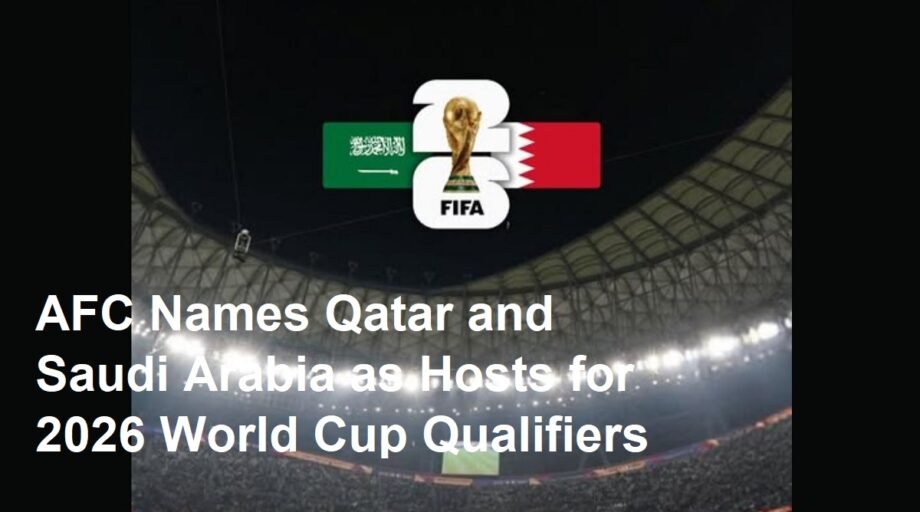Introduction
The Asian Football Confederation (AFC) has officially designated Qatar and Saudi Arabia as the host countries for the 2026 FIFA World Cup qualification matches, a decision that highlights the region’s growing prominence in global football. This strategic move emphasizes the Middle East’s expanding role in international football and sets the stage for an exciting and competitive qualification phase leading up to the highly anticipated World Cup.
Qatar and Saudi Arabia: Rising Football Powerhouses
Qatar and Saudi Arabia have made significant investments in football infrastructure and development over recent years. Qatar, the host of the 2022 FIFA World Cup, demonstrated its capability to organize world-class sporting events, earning respect and recognition globally. Saudi Arabia, with its historic football culture and rapidly growing domestic league, stands as a key football hub in Asia.
Hosting the qualifiers in these two nations promises world-class facilities, passionate fan engagement, and a high level of competition. The matches will be pivotal for teams aiming to secure their spots in the 2026 World Cup, highlighting the competitive spirit across the AFC region.
Impact on Asian Football and the Road to 2026
The AFC’s decision to allocate hosting duties to Qatar and Saudi Arabia will help streamline the qualification process. Both countries have the logistics and infrastructure to accommodate multiple teams and matches safely and efficiently. It also alleviates travel challenges for many participating countries within Asia, fostering a more balanced and exciting qualification journey.
Moreover, this setup strengthens the Middle East’s bid to become a football hub attracting global attention beyond just major tournaments. By hosting the qualifiers, Qatar and Saudi Arabia enhance their profiles as premier football destinations, supporting the growth of the sport regionally.
Why This Matters: Strategic and Sporting Benefits
Besides the logistical advantages, hosting the qualifiers carries multifaceted benefits. Economically, the influx of teams, officials, and fans will boost tourism and local businesses in both countries. Culturally, it promotes cross-border interactions and celebrates the unity football fosters among diverse nations.
Sportingly, local football enthusiasts will benefit from witnessing top-level Asian teams compete on home soil, further elevating the sport’s popularity. For aspiring footballers in the region, it opens up opportunities to get inspired by international-level matches live.
Challenges and Expectations
Despite the strategic advantages, the AFC and host nations face challenges, including the need to maintain strict health and safety protocols, given the ongoing global health landscape. Ensuring fair play, efficient scheduling, and high-quality broadcasting will be crucial to delivering a smooth qualification phase that meets global standards.
Fans and stakeholders worldwide will closely watch how the AFC manages the qualification structure, potentially influencing future decisions for hosting regional tournaments. Success here could pave the way for more Middle Eastern countries hosting significant international football events.
Conclusion
The AFC’s appointment of Qatar and Saudi Arabia as hosts for the 2026 World Cup qualification matches represents a significant milestone for Asian football. It showcases the Middle East’s rising influence in the sport and promises an engaging qualification campaign leading to the global tournament. As the football community gears up for this exciting phase, all eyes will be on both nations to deliver an unforgettable and successful qualification journey.








